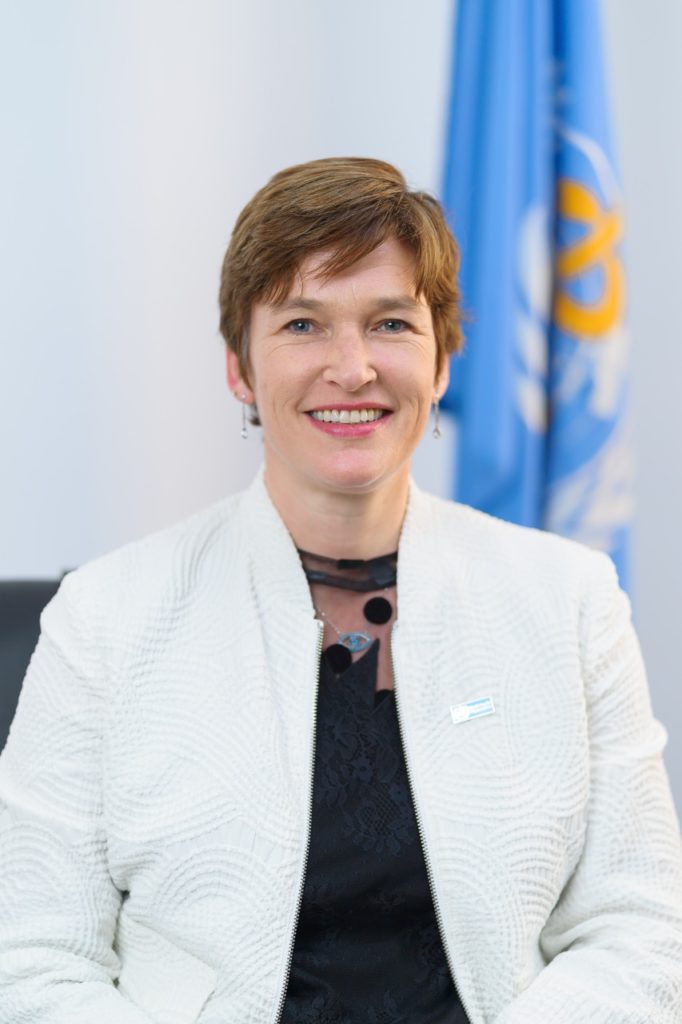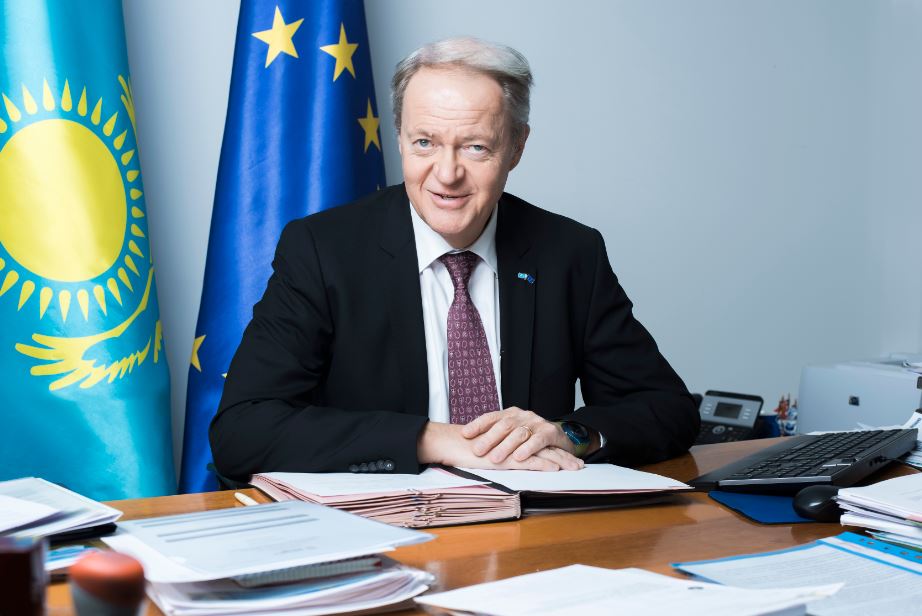NUR-SULTAN – How effective are lockdown measures during the COVID-19 pandemic? How does Kazakhstan participate in the vaccine development effort? What recommendations from the World Health Organization have been given to Kazakhstan to prevent the second wave of the pandemic?

Caroline Clarinval
WHO Country Office Representative in Kazakhstan Dr Caroline Clarinval spoke about the COVID-19 situation and Kazakhstan’s efforts to tackle the outbreak in the TV program on Khabar Channel.
“The COVID-19 situation in Kazakhstan remains relatively stable,” said Dr Clarinval. WHO commended “the efforts made by the people of Kazakhstan, the government, as well as the Ministry of Healthcare and particularly the healthcare workforce.”
Dr Clarinval highlighted that the transmission also depends on population density and the measures that are being proposed.The national authorities have provided a set of recommendations and information to the population.
“It is essential to remember that everyone has a role to play to break the chain of transmission. Keep your distance from others, clean your hands, avoid crowded and enclosed areas, and wear a mask when recommended,” she said.
As of Dec.7, 136,983 confirmed cases and 43,106 pneumonia cases with COVID-19 symptoms were registered since March 13 in Kazakhstan and 2,034 people died. Certain regions in Kazakhstan are currently in the so-called yellow zone, according to the risk assessment tool developed by the ministry.
Also, Dr Clarinval reaffirmed WHO’s position that lockdowns should be a measure of last resort as they are a costly recourse to suppressing the virus. “Science tells us that measures to control COVID-19 depend on local risk assessments, if clusters and outbreaks do appear, they should be slowed at local level and therefore localized and targeted movement restrictions, implemented jointly by local authorities in line with national recommendations, might be considered from time to time.”
In Kazakhstan, each region has introduced its own sanitary-epidemiological measures and restrictions to control the spread of the virus.
Dr Clarinval also noted that Kazakhstan has engaged in the development of a COVID-19 vaccine.
The clinical trials are carefully designed, reviewed and completed, and approved by the national regulatory authorities and national ethics committees before they start.
The vaccine development remains one of the priorities for the Kazakh government. Earlier the Research Institute for Biological Safety Problems announced plans to continue its work on five platforms for developing a COVID-19 candidate vaccine. The second stage of clinical trials are planned to be completed in December 2020. The third stage of vaccine trials will last until 2021.
However, countries should not solely rely only on a future vaccine to fight this pandemic, she said. “We must use all the tools we already have at our disposal. For countries this means implementing the fundamental public health and social measures to find, isolate, test and care for cases; and trace and quarantine their contacts.”
Dr Clarinval reported that the WHO’s contribution to the fight against the COVID-19 outbreak is twofold. WHO provides technical expertise in the area of healthcare and an exchange among experts of the Kazakh Ministry of Healthcare and WHO. WHO also provides medical supplies and medical equipment such as personal protective equipment, lab equipment and reagents as well as oxygen therapy supplies for further distribution among hospitals.
Kazakhstan has promoted certain public health measures and has invested in hospital surge capacities, repurposed some and built new hospitals and introduced digital solutions for case detection using global best practices.
The laboratory conducts approximately 30,000 tests a day. Testing is one of the key approaches recommended by WHO to confirm a clinical diagnosis in COVID-19 patients.
Citizens and the government should keep in mind their “overall aim which is to prevent further infections and to provide appropriate care to the sick” to avoid possible lockdowns. Responding to a disease outbreak requires a collective effort.
Lockdown alone cannot effectively resolve the situation, it is advisable to adhere to the essential principles, which prevent COVID-19 from spreading, such as hand hygiene, respiratory etiquette, physical distancing, and wearing masks when recommended.
The European Union (EU) Ambassador to Kazakhstan Sven-Olov Carlsson, who also participated in the TV program, reported that the EU and its Member States provided $149 million to Central Asian countries as part of the Team Europe aid package in spring 2020.

Sven-Olov Carlsson
The EU also launched the Central Asia Covid-19 Crisis Response Program implemented by the WHO. The program primarily focuses on the needs of Kazakhstan to strengthen the capacities of the national health systems and to support the national authorities in their fight against the COVID-19 outbreak.
“The program is designed around three consecutive phases. First, it will address immediate needs in the framework of existing national COVID-19 preparedness and response plans. Then, once the peak of the outbreak is passed the focus will shift on the recovery. Finally, looking at the long-term perspective, a number of activities will be implemented in order to build and maintain resilient, responsive and strengthened health systems,” said Carlsson.
